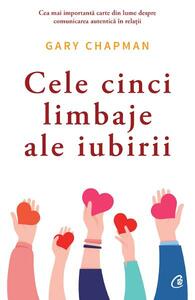Take a photo of a barcode or cover
A great book of counseling. It was helpful with ideas on how to encourage different types of love.
Useful within its scope, but I find it to be a very limited scope.
Liked:
- His view of "love" vs "being in love"
- The idea that not all people give and receive love in the same way. Even though in summary it's a quite simple concept, I enjoyed the added value of reading the ~200p-version of it.
Disliked:
- All the Christianity references and pre-defined view 'because the bible says so'
- The book is only about 1 narrow thing : if you're in a relation/marriage where you originally were crazy in love, but that feeling naturally dropped after 2 years. From that moment on, you and your partner grew apart because you both can't show that you love each other. But nonetheless, you've decided that you still want to fully invest in this relationship and make it long-lasting and loving. Nothing about partner selection, nothing about external factors that made you grow apart, nothing about friendship, nothing about personal development where love language changes over time, ...
- By focussing on 'love language', I believe that many other dimensions of human psychology, behavior and interaction are left out. But he makes it seem as if he's covered the full picture.
- Chapter 12 (hate your enemy) was just horrible to read. It's insane to persuade people into continuing toxic relationships because it might turn out OK after a few more months of intentionally obeying to the other person's will.
Liked:
- His view of "love" vs "being in love"
- The idea that not all people give and receive love in the same way. Even though in summary it's a quite simple concept, I enjoyed the added value of reading the ~200p-version of it.
Disliked:
- All the Christianity references and pre-defined view 'because the bible says so'
- The book is only about 1 narrow thing : if you're in a relation/marriage where you originally were crazy in love, but that feeling naturally dropped after 2 years. From that moment on, you and your partner grew apart because you both can't show that you love each other. But nonetheless, you've decided that you still want to fully invest in this relationship and make it long-lasting and loving. Nothing about partner selection, nothing about external factors that made you grow apart, nothing about friendship, nothing about personal development where love language changes over time, ...
- By focussing on 'love language', I believe that many other dimensions of human psychology, behavior and interaction are left out. But he makes it seem as if he's covered the full picture.
- Chapter 12 (hate your enemy) was just horrible to read. It's insane to persuade people into continuing toxic relationships because it might turn out OK after a few more months of intentionally obeying to the other person's will.
The underlying concept, that there are individual differences in how we want and show love, is good. I liked the examples and suggestions enough. However, it was quite heavy handed in drawing from the bible, as were the jesus references. My biggest problem was one of the last examples where he conducts an "experiment" with a woman who hates her husban, because he has not been loving, and vaguely abusive (curses and mistreats her)- he suggests she still love him and show him her love, because that's what jesus would have done...?? I have serious problems with it. Additionally, it puts a little too much individual responsibility in relationship satisfaction and maintaining love. I agree that staying in and working in a romantic relationship, and choosing to love the person you feel in love with are all within our control. However, the flip side seems to suggest that then falling out of love, or not staying in a relationship is due to the person "not doing enough" or other failures. This lack of acknowledgment of external effects feels a little tone deaf, especially for a book designed to "help".
I think this book is super helpful in relationships, it helps so much to understand your spouses love language.
I appreciated the insights the book gave, around how to focus on what’s most important for your partner and how to check in on them to make sure they’re ok in the relationship before you both get carried away and stop paying attention to each other after the first obsessive stage. You know, all that common sense love-is-a-choice and you-need-healthy-communication type of stuff.
The examples I really didn’t care about. I was rolling my eyes so hard I thought they might stay there for a while. I get that his clients are mainly white Christian couples, so that’s what he gets to work with but found absolutely no connection with those stories. I was pretty bored with most of this book.
The examples I really didn’t care about. I was rolling my eyes so hard I thought they might stay there for a while. I get that his clients are mainly white Christian couples, so that’s what he gets to work with but found absolutely no connection with those stories. I was pretty bored with most of this book.
hopeful
informative
lighthearted
reflective
slow-paced
Great concept that I think everyone should know as it encourages open communication as well as continuous striving to work on one's long-term relationship. But you would be much better off just doing some research of it online rather than picking up this book.
Why?
1. No empirical evidence or statistics provided. This is purely Chapman's observances and analogies of some of his SUCCESSFUL adventures as a couple's therapist. If you're looking for something that can be proved or is based in science, you won't find it here.
2. Extremely heteronormative. This book was re-released in 2015! Wouldn't you want your book to be as inclusive as possible to reach as many as you could?? But it relies on a lot of assumptions regarding couples and gender that get tiring to read.
3. Overly religious. If you're religious, great. If not: The Christian preachiness becoming a problem is most obvious to me in chp. 12. Sometimes divorce is the best option Gary.
4. But most of all, this concept could be explained just as well in a five minute TED talk without all the filler. This book is not gonna add anything you couldn't figure out on your own with a Google search.
2.1/5
Why?
1. No empirical evidence or statistics provided. This is purely Chapman's observances and analogies of some of his SUCCESSFUL adventures as a couple's therapist. If you're looking for something that can be proved or is based in science, you won't find it here.
2. Extremely heteronormative. This book was re-released in 2015! Wouldn't you want your book to be as inclusive as possible to reach as many as you could?? But it relies on a lot of assumptions regarding couples and gender that get tiring to read.
3. Overly religious. If you're religious, great. If not: The Christian preachiness becoming a problem is most obvious to me in chp. 12.
Spoiler
A woman who feels used and abused by her husband tells Chapman she does not feel comfortable engaging in sex with her spouse. Chapman's response is to conduct an "experiment" and have her force herself to engage in intercourse despite it being difficult saying she will have to "rely heavily upon your faith in God in order to do this". Chapman justifies this by reminding her that Jesus said to love your enemies. Barf.4. But most of all, this concept could be explained just as well in a five minute TED talk without all the filler. This book is not gonna add anything you couldn't figure out on your own with a Google search.
2.1/5
This has some of the most helpful and enlightening tips to better understanding your spouse. And honestly, yourself and anyone else in your life. So much perspective is given on how people are more or less receptive to certain treatment and how best to show you love them. You may think you are doing it right but in their eyes it is all wrong. This book explains it. SO if you don't feel appreciated by your partner or they complain a lot or seem unhappy (or if you are) read this book. Seriously, everyone I have ever spoken to that has read this has benefited. It makes sense, and, often times, the ideas here help a lot! While the book focuses on the spouse, I was able to identify how I can best show other family and friends that I care. It is amazing when you think about it how some things matter so much to one person yet so little to another. This really explains why a 20 minute conversation can mean so much, yet a backrub so little. Or why a simple card makes their week or would doing the dishes have a larger impact? This comes highly recommended!!!
This was a fast read I loaned from the library and was totally worth it! I love psychology and hope to do counseling some day. I’m also in a relationship (first one in my life) and feel learning/brushing up on communication and expressing love can strengthen our relationship. The Five Love Languages is very easy to read and simple and beats the point home but I feel they are points that deserve to be beaten into us. People give and receive love in different ways! The book has some biblical references but as an atheist myself, it didn’t bother me. It was just another way to phrase a definition/importance of love that may be powerful to some readers - I didn’t find it preachy at all. While this book is written more as “love languages of marriage and relationships” the concrete principles can be applied to loving communication is any relationship whether it be romantic, friends, or family.
I honestly recommend this book to everyone but ESPECIALLY if you are struggling to see the good and love in your current relationship.
I honestly recommend this book to everyone but ESPECIALLY if you are struggling to see the good and love in your current relationship.




